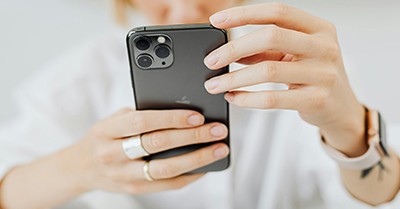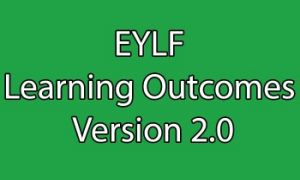Here’s a comprehensive Mobile Phone and Smart Watch Policy tailored for early childhood education and care (ECEC) services in Australia, aligned with the latest 2025 legislative reforms and National Quality Framework (NQF) updates.
Mobile Phone & Smart Watch Policy
Version: 2.0
Effective Date: 1 September 2025
Review Date: Annually or upon legislative change
Applies to: All educators, staff, volunteers, students, contractors, and visitors
Purpose
To safeguard children’s well-being by regulating the use of mobile phones and smart watches in early learning environments. This policy ensures compliance with:
- Education and Care Services National Law & Regulations
- Child Safe Standards (Victoria)
- National Principles for Child Safe Organisations
- Mandatory reporting laws across all states and territories
Legislative & Regulatory Alignment
This policy reflects:
- Mandatory 24-hour reporting of child abuse allegations (2025 reform)
- Digital device protocols under updated NQF Quality Areas 2 (Children’s Health & Safety) and 7 (Governance & Leadership)
- Commonwealth Child Safe Framework and state-specific child protection laws
- Privacy obligations under the Children Legislation Amendment (Information Sharing) Act 2018 (Vic)
Policy Statements
1. Personal Device Restrictions
- Staff must store personal phones and smart watches securely during contact hours.
- Use is permitted only:
- In emergencies
- With prior approval from the Nominated Supervisor
- Devices must be set to silent or do-not-disturb mode during shifts.
2. Smart Watch Protocols
- Smart watches with messaging, camera, or recording functions are treated as mobile phones.
- Staff must disable notifications and refrain from interacting with watches during supervision or direct engagement with children.
3. Photography & Recording
- Personal devices must never be used to photograph, video, or record children.
- All image capture must:
- Be conducted using service-approved devices
- Follow written parental consent protocols
- Comply with secure storage and deletion procedures
- Align with the service’s Digital Safety and Privacy Policy
4. Online Safety & Surveillance
- The service must ensure:
- Safe online environments for children
- No unauthorised recording or surveillance via wearable tech
- Clear signage outlining digital safety expectations for visitors
5. Visitors & External Personnel
- Visitors, contractors, and students must:
- Store personal devices during child-facing activities
- Seek permission before using any device on premises
- Be informed of this policy during induction or sign-in
Staff Responsibilities
- Participate in child safety induction and annual refresher training
- Understand and uphold obligations under:
- Mandatory reporting laws
- Service Code of Conduct
- Child Safe and Wellbeing Policy
- Report breaches or concerns to the Nominated Supervisor or Responsible Person
Breaches & Consequences
- Breaches may result in:
- Verbal or written warnings
- Restricted access to devices
- Formal investigation under the service’s Incident Management Procedure
- Notification to regulatory authorities if child safety is compromised
Supporting Policies & Procedures
- Child Safe and Wellbeing Policy
- Code of Conduct and Ethics
- Incident Management Procedure
- Digital Technology & Online Safety Policy
- Recruitment & Induction Policy
- Privacy & Information Sharing Policy
- Allegations of Reportable Conduct Procedure
Review & Continuous Improvement
- This policy will be reviewed:
- Annually
- Following any legislative updates
- After incidents or breaches
- Feedback from staff, families, and children will inform updates.
Further Reading
Using Personal Devices To Take Photos Of Children
References:
-
Education and Care Services National Law (NSW)
-
Education and Care Services National Regulations, especially Regulation 168(2)(h)
-
NSW Child Safe Standards, including:
-
Standard 1: Culturally safe environments
-
Standard 9: Implementation of child safety policies
-
-
Children and Young Persons (Care and Protection) Act 1998 (NSW)—mandatory reporting obligations
-
NSW Department of Education Mobile Phone Procedures (PD-2023-0480)
-
Regulatory Policy, Practice & Performance Framework—risk-based, user-centred, evidence-driven policy design
-
Australian Government Guide to Policy Impact Analysis







 The Children’s Services Award introduces a streamlined classification system and updated pay rates designed to better recognise the skills, qualifications, and responsibilities of early childhood
The Children’s Services Award introduces a streamlined classification system and updated pay rates designed to better recognise the skills, qualifications, and responsibilities of early childhood Children need safe and positive environments to learn and grow. To ensure this, services and educators need to ensure effective supervision at all times. The
Children need safe and positive environments to learn and grow. To ensure this, services and educators need to ensure effective supervision at all times. The In Norway and most other Scandinavian countries, children nap in the outdoors. According, to research outdoor sleeping not only promotes better daytime sleeping, but it
In Norway and most other Scandinavian countries, children nap in the outdoors. According, to research outdoor sleeping not only promotes better daytime sleeping, but it Schemas are patterns of repeated behavior that allow children to explore and express developing ideas and thoughts through their play and exploration. The following article
Schemas are patterns of repeated behavior that allow children to explore and express developing ideas and thoughts through their play and exploration. The following article The following article lists 30 art and craft descriptions and links to the EYLF. These can be used as a blurb, during observations, used for
The following article lists 30 art and craft descriptions and links to the EYLF. These can be used as a blurb, during observations, used for From the earliest months of life, babies thrive when given opportunities to experience the outdoors. Nature is not just a backdrop for play—it is a
From the earliest months of life, babies thrive when given opportunities to experience the outdoors. Nature is not just a backdrop for play—it is a Feel Good Feb is dedicated to saying thanks, expressing gratitude, and promoting good deeds and random acts of kindness.
Feel Good Feb is dedicated to saying thanks, expressing gratitude, and promoting good deeds and random acts of kindness.
 The Education and Care Services National Regulations emphasise that children's individual needs, including sleep and rest, must be met. The overarching goal is to ensure
The Education and Care Services National Regulations emphasise that children's individual needs, including sleep and rest, must be met. The overarching goal is to ensure Positive phrases play a crucial role in children's growth because they help nurture their emotional, social, and cognitive development. The following article lists 30 positive
Positive phrases play a crucial role in children's growth because they help nurture their emotional, social, and cognitive development. The following article lists 30 positive From 2026, every educator covered by the Children’s Services Award will move into a new, simplified classification structure. Instead of navigating 30 different levels, educators
From 2026, every educator covered by the Children’s Services Award will move into a new, simplified classification structure. Instead of navigating 30 different levels, educators


